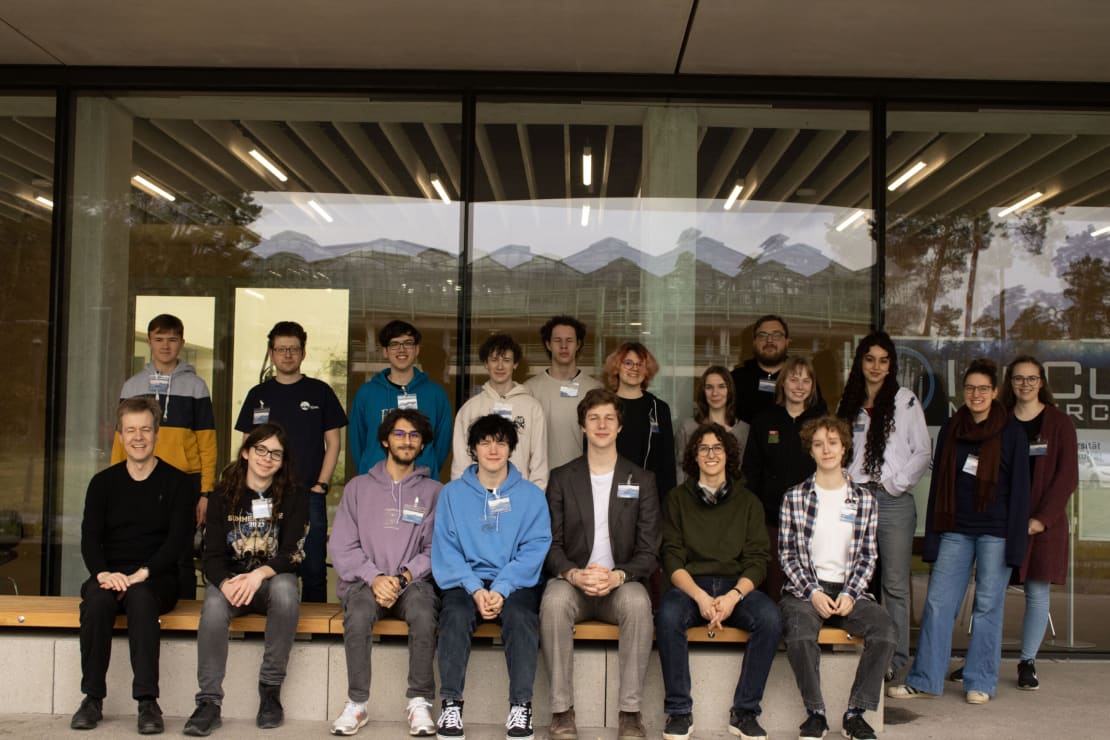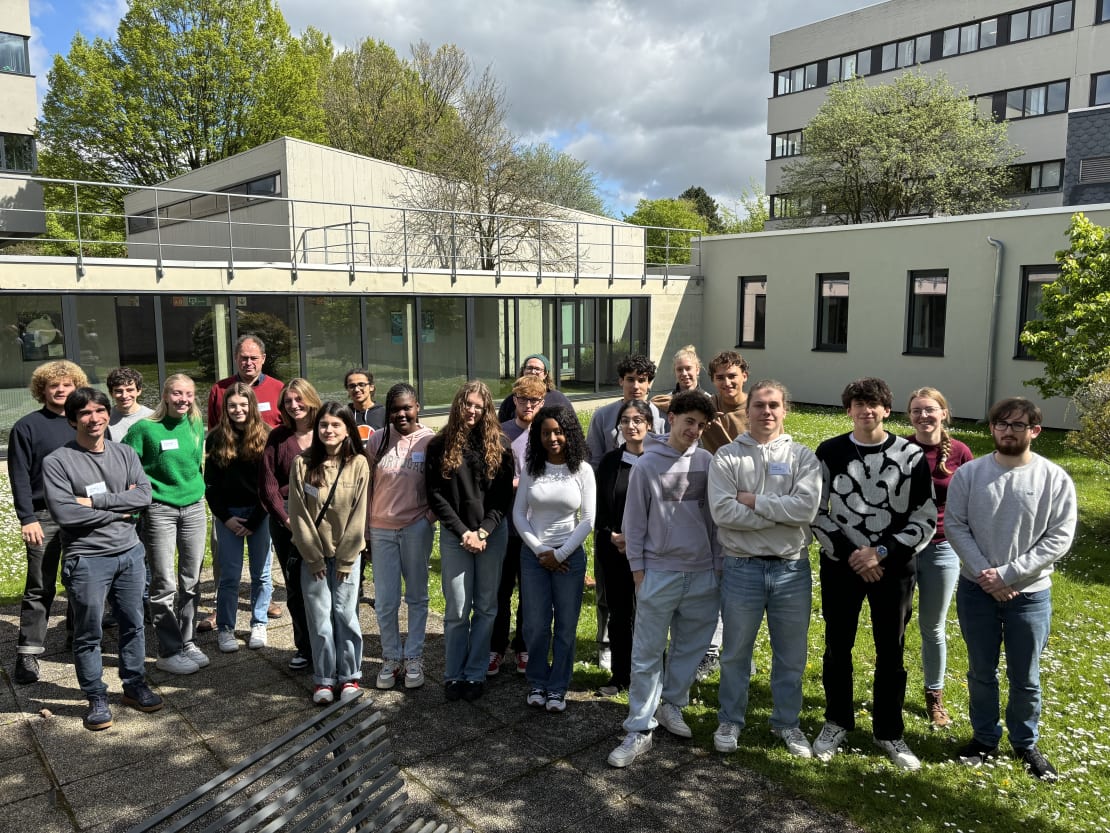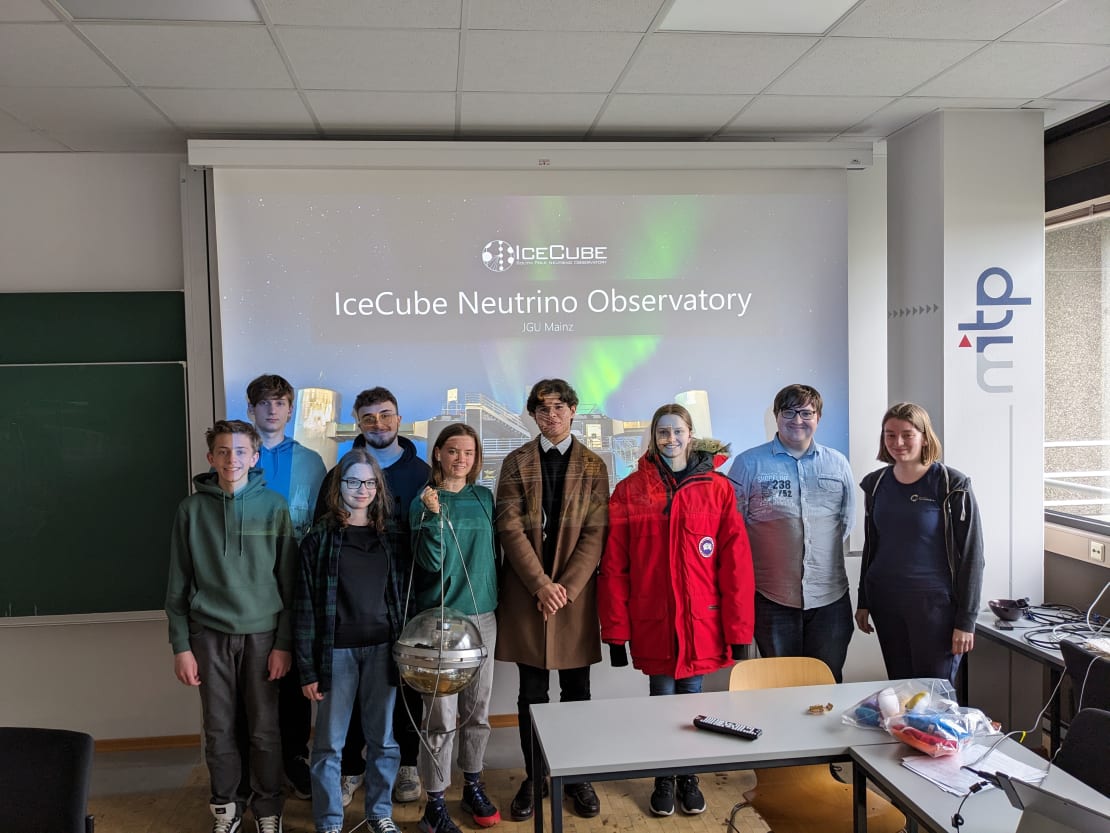This year, over 200 students across 20 research institutions in Belgium, Canada, Denmark, Germany, Thailand, Sweden, and the United States participated in the eleventh edition of IceCube Masterclass. The masterclasses were held between the months of January and May, with many of them running an in-person program. This year, the University of Utah and Chiang Mai University in Thailand participated in masterclass for the first time.
Since 2014, the program has exposed high school students—mostly sophomore level and up—to research careers in astrophysics and IceCube science. Each host institution provides a day full of hands-on activities and lectures, including analysis of real IceCube data, lunch with IceCube researchers, and a webcast with researchers at the South Pole.

Once again, both the Georgia Institute of Technology and Mercer University collaborated for the masterclass, hosting 25 high school students in Macon, Georgia. Elsewhere in the United States, Michigan State University hosted 12 high school students from the surrounding areas.
For the second straight year, Queen’s University in Canada held a masterclass, with five participants this year as the program continues to build in the years to come.


In Europe, the Johannes Gutenberg-Universität Mainz in Germany had eight students participate in the program, which included physics talks and activities such as analyzing IceCube data and building cloud chambers. One of the highlights of the event was a joint winterover call with RWTH Aachen University and the Erlangen Centre for Astroparticle Physics, with Erlangen hosting 15 students. UCLouvain in Belgium hosted 67 students total across two masterclasses.
The Wisconsin IceCube Particle Astrophysics Center (WIPAC) in Madison, Wisconsin, hosted another in-person program this year, with seven students and two visiting teachers participating. The participants talked to IceCube graduate students, heard from researchers at the South Pole, recorded their own data, and worked through example analyses to end the day.

“With twenty participating institutions in Asia, Canada, Europe, and the United States, the 11th edition of the IceCube Masterclass was a success,” says Ellen Bechtol, outreach program manager at WIPAC who helps organize the IceCube Masterclass. “It’s incredibly rewarding to work with engaged and enthusiastic participants every year.”
